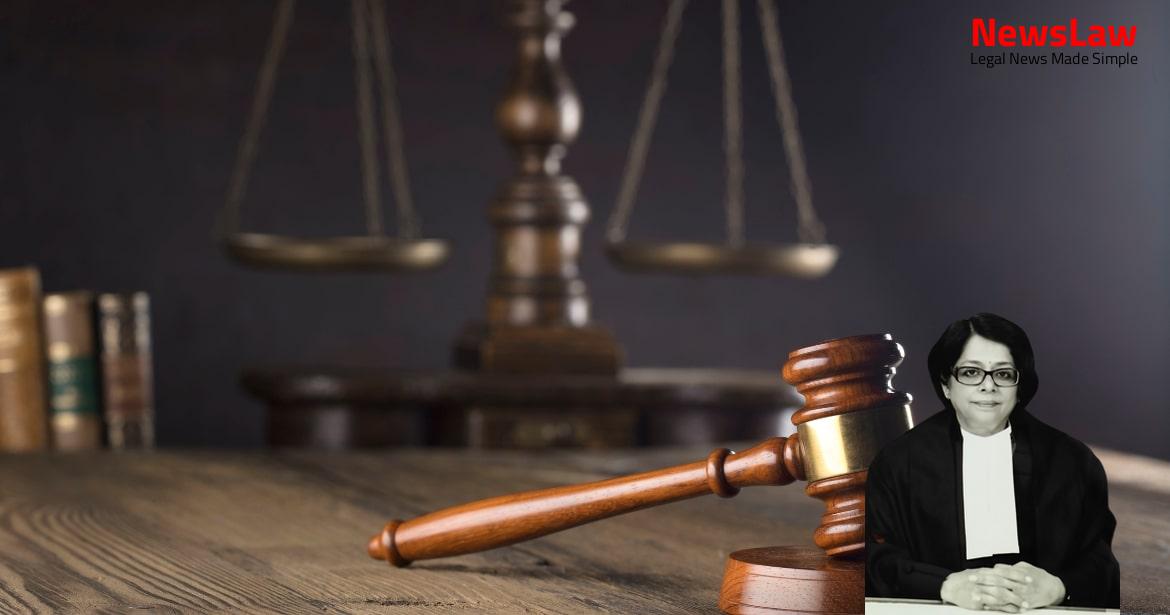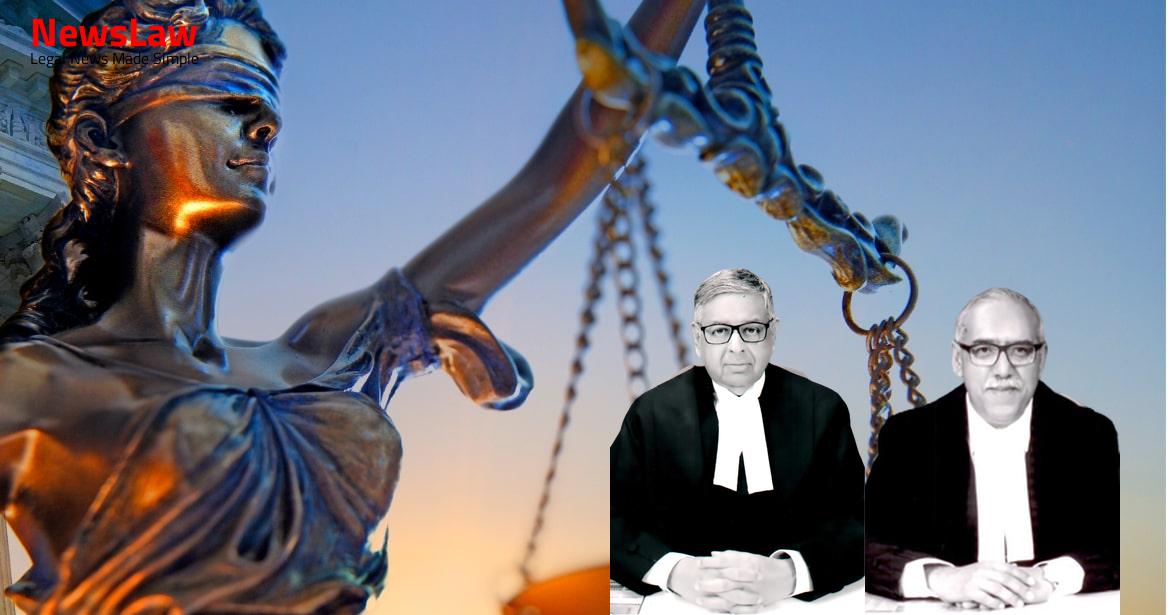In a significant legal battle over child custody, the Supreme Court of India delivered a judgment in the case of Dr. Kulwant Singh vs. Maternal Grandmother. The dispute centered around the custody of a minor child, with Dr. Kulwant Singh, the respondent-father, seeking custody against the petitioner, the Maternal Grandmother. The court’s decision emphasized the paramount consideration of the child’s welfare in such matters. Let’s delve into the details of this crucial custody case.
Facts
- The High Court allowed the petition filed by Dr. Kulwant Singh, the father of the minor child, and directed the maternal grandmother (appellant herein) to hand over custody of the child to him.
- The custody of the minor child has remained with the appellant-grandmother throughout the appeal process.
- This Court issued a notice on 23 September 2022, directing that the child shall remain in the custody of the appellant-grandmother until further decision.
- Leave was granted by this Court on 21 November 2022, confirming the interim custody order until the final appeal decision.
- The Child Welfare Committee (CWC) found the minor child to be ‘a child in need of care and protection’ and determined that the father, Dr. Kulwant Singh, could take care of the child.
- The CWC’s decision was challenged by the appellant-grandmother through a Criminal Appeal under Section 101 of the JJ Act on 11 February 2020, contesting the CWC’s order.
- The investigation into the mother’s disappearance resulted in a cancellation report being submitted to the competent court in August 2021.
- During the investigation, the father voluntarily handed over the minor child to the appellant-grandmother.
- The CWC recorded statements from various family members and concluded that the child should be under the care of the father, Dr. Kulwant Singh.
- The Appellate Court overturned the CWC’s decision, stating that the child did not fall under the category of ‘a child in need of care and protection’ as defined in the JJ Act.
- The Appellate Court held that the CWC exceeded its jurisdiction by passing the order under challenge.
- The order passed by the CWC on 5 February, 2020, was deemed illegal and without jurisdiction as per the JJ Act provisions.
- The High Court granted visiting rights to the appellant-grandmother and her husband for a period of one year, allowing them to visit the child’s residence for 8 hours once a month.
- The High Court kept open the rights of all parties to invoke any available remedies under special laws in accordance with the law.
- The respondent-father filed a Criminal Writ Petition on 5 February, 2021, seeking the release of the minor child from the alleged illegal custody of the appellant-grandmother.
- The High Court determined that the child’s welfare, then 7 years old, would be best served by being in the custody of the father.
- The Single Judge of the High Court, in the order dated 23 August, 2022, prioritized the principle that ‘welfare of the child is of paramount consideration’ and allowed the petition of the respondent-father.
Also Read: Analyzing the Legal Journey: Jasobanta Sahu vs. State of Orissa – A Landmark Case
Arguments
- The appellant-grandmother argues that the custody of the minor child was not illegal as it was voluntarily placed with her by the respondent-father.
- She believes that the court should not have entertained the petition under Article 226 of the Constitution and instead consider remedies under the Guardians and Wards Act, 1890.
- It is mentioned that the grandmother was appointed as a guardian only for caretaking purposes related to a gifted plot, and the child has been with the grandparents since the death of the mother.
- Concerns are raised about the potential psychological trauma to the child if taken away from the grandparents at a young age.
- Reference is made to a prior court judgment supporting the best interest of the minor child in similar situations.
- An affidavit providing for the natural guardian does not hold significance when the statute itself specifies the natural guardian.
- The affidavit does not appoint a guardian for all purposes.
- Cited cases Tejaswini Gaud and others vs Shekhar Jagdish Prasad Tewari and Yashita Sahu vs State of Rajasthan and others in support of the argument.
Also Read: Analyzing the Acquittal: Suresh @ Unni @ Vadi Suresh vs. The State of Kerala
Analysis
- The habeas corpus proceedings are not to examine the legality of custody but to address custody to the court’s discretion.
- In child custody matters, the power of the High Court to grant the writ is limited to cases where a minor is detained by someone without legal custody.
- The paramount consideration in child custody cases is the welfare of the child.
- The court’s jurisdiction in Guardians and Wards Act cases depends on the minor’s habitual residence within its area.
- The difference between enquiries under the Guardians and Wards Act and the summary nature of writ court powers is significant.
- The court should promote bonding between the child and the father before deciding on custody.
- In this case, the child was placed with the grandparents by the father himself for care in a family environment.
- Legal custody rights and the child’s welfare take precedence in custody matters.
- Ordinary remedies for child custody lie under Hindu Minority and Guardianship Act or Guardians and Wards Act.
- Extraordinary jurisdiction under Article 226 should be used sparingly in custody cases.
- The Court found that the child, being a minor at 1½ years old, cannot express intelligent preferences.
- The father, as the natural guardian, sought custody of the child under Article 226 of the Constitution of India.
- Legal position reiterated in cases of Jose Antonio Zalba Diez Del Corral and Rajeswari Chandrasekar Ganesh vs. State of Tamil Nadu and others.
- No strict rule regarding the maintainability of a habeas corpus petition in matters of a minor child’s custody.
- The issue of maintainability of Habeas Corpus petitions in minor child custody cases has been considered in various matters.
- In the case of Tejaswini Gaud and others, the Court observed after reviewing previous cases.
- The High Court was not justified in entertaining the petition under Article 226 of the Constitution of India.
- Such an exercise is not permissible in the extraordinary jurisdiction under Article 226 of the Constitution of India.
- No observation in the impugned judgment and order or in the present judgment and order would be binding on the proceedings if taken by the father under the Guardians and Wards Act, 1890.
- The proceedings will be decided in accordance with the law on their own merits.
Also Read: Supreme Court Judgment: Mohd. Ahsan vs. State of Haryana – A Case Analysis
Decision
- The impugned judgment and order of the Punjab and Haryana dated 23 August 2022 in CRWP-1485-2021 (O&M) is quashed and set aside.
- An order regarding visitation rights must be passed within 4 weeks of the application being made.
- The appeal is allowed under the mentioned terms.
- Any pending applications are disposed of.
- The writ petition filed by the respondent-father is dismissed.
- The respondent-father can file an application under the Guardians and Wards Act, 1890, and the competent Court should decide it promptly.
Case Title: NIRMALA Vs. KULWANT SINGH (2024 INSC 370)
Case Number: Crl.A. No.-002194-002194 – 2022



